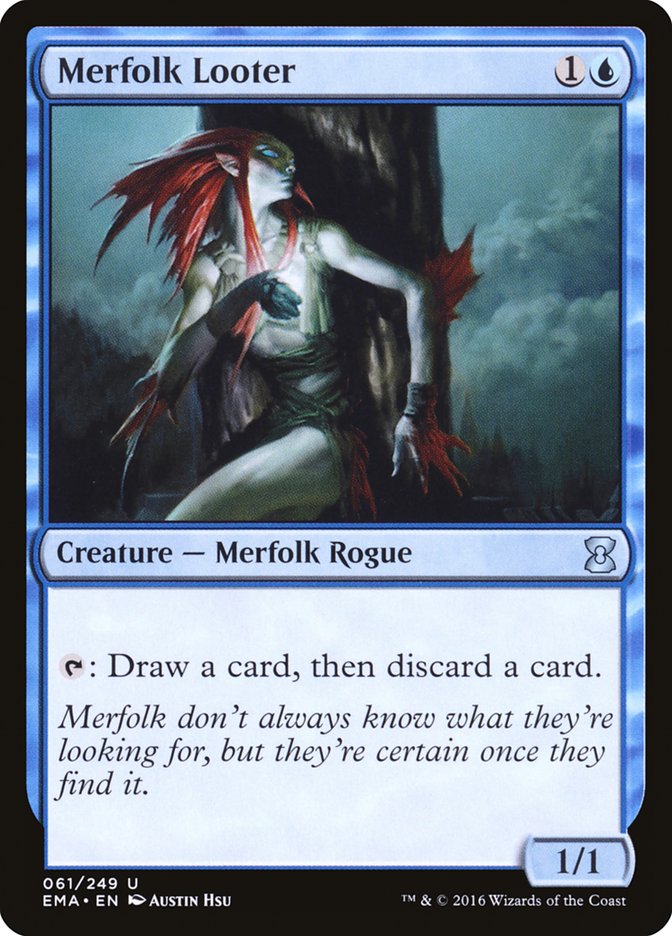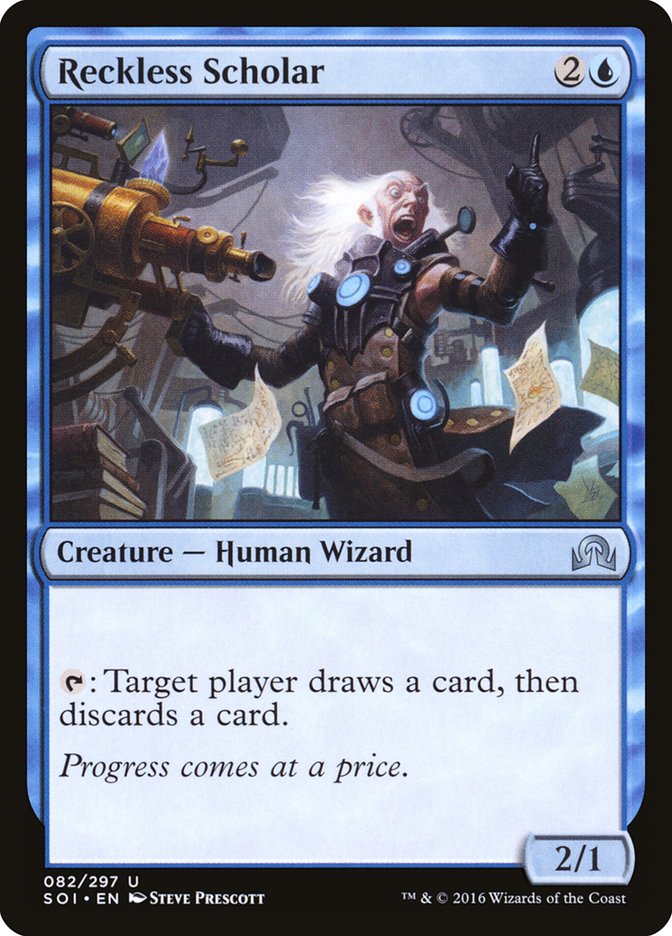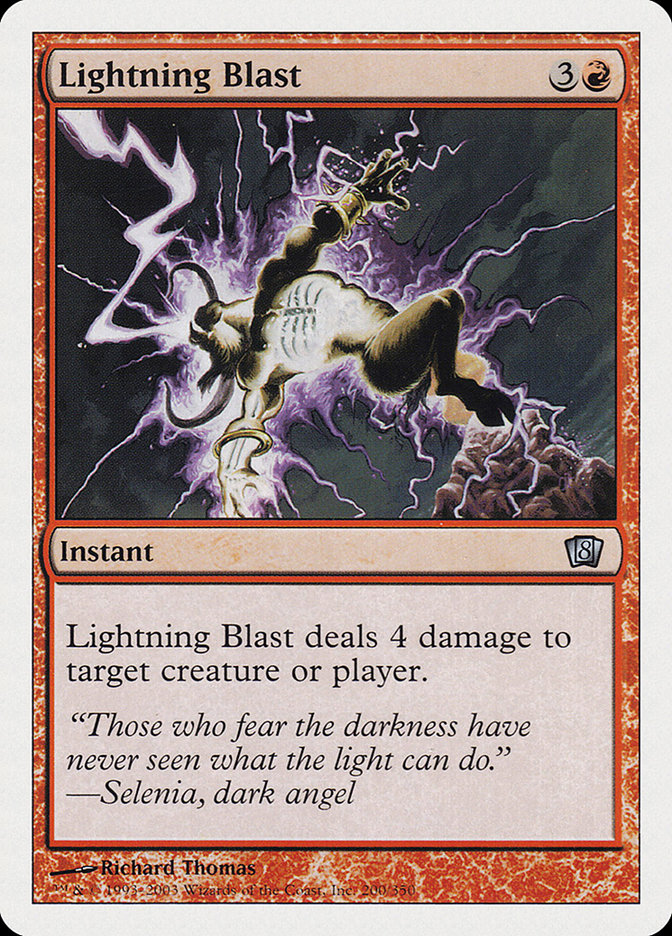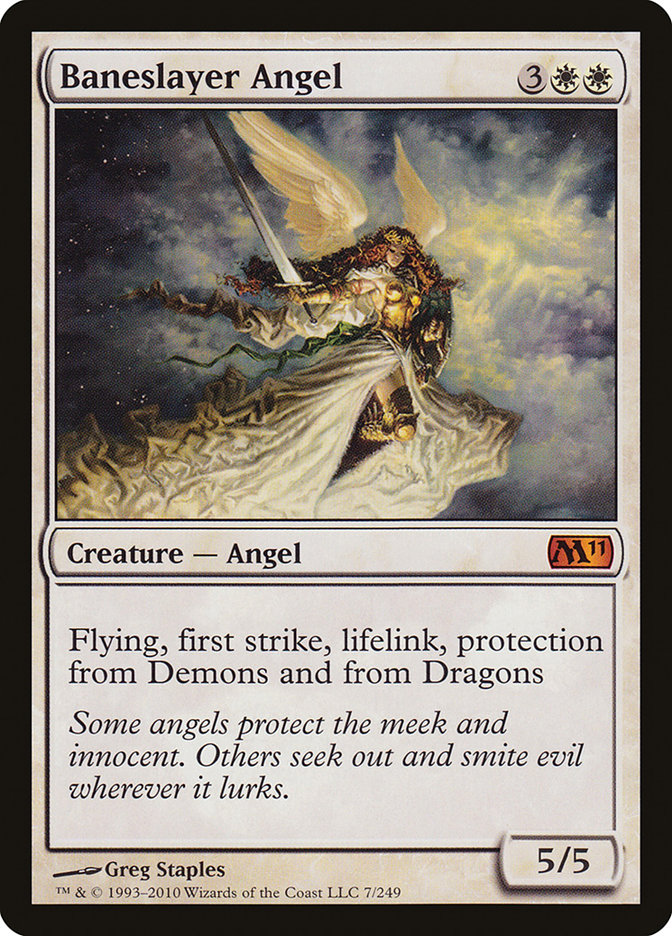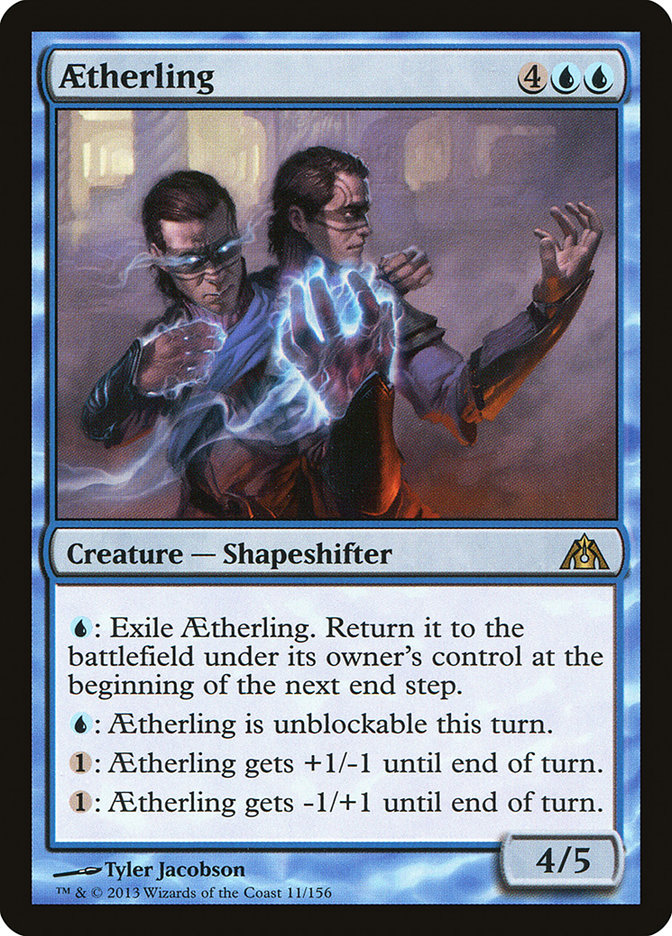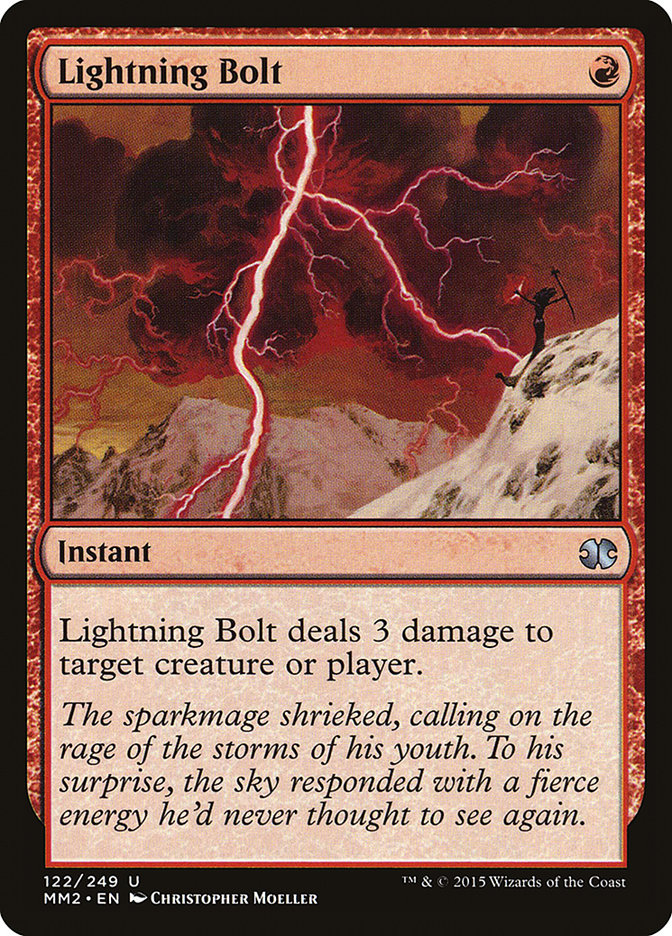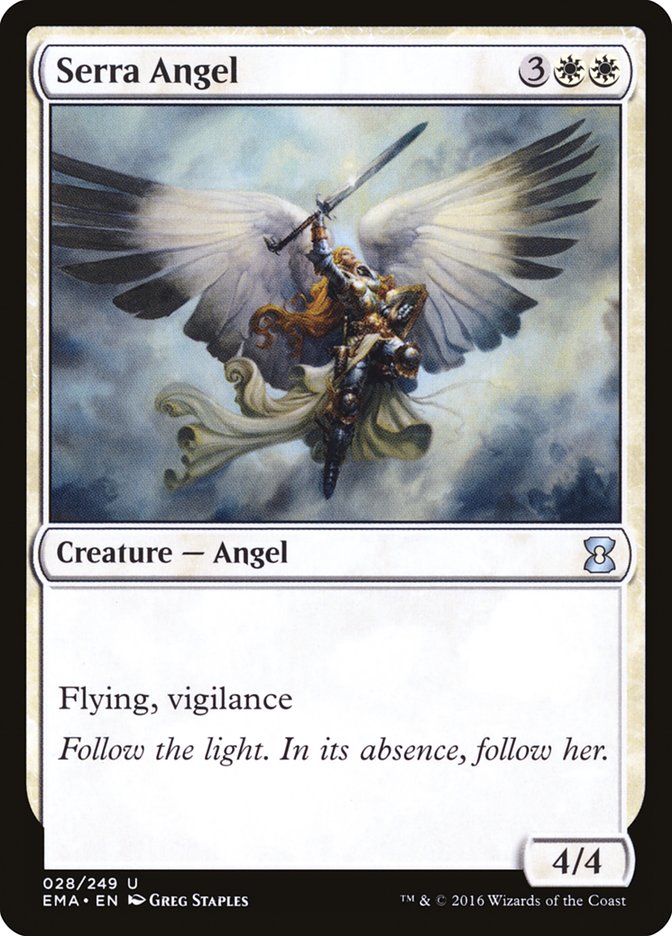This is going to be one of my more free-form articles, as some discussion topics have come up recently that I’d like to weigh in on that I think I can offer some unique perspectives on.
On Looting
First, Luis Scott-Vargas raised a simple question that’s gotten a ton of attention on social media over the past few days by writing about “The Looter Problem.” My thinking on the subject has been somewhat biased because I first encountered the question when Justin Cohen messaged me saying, “wow i would not have considered that an interesting question but so many people chose no loot,” which prompted me to try to think about why people might say that, and then, when he said he hadn’t seen a plausible defense, I had to build one. From there, I became slightly attached to that side. Now, I’m not arguing that looting is wrong given the information provided, however, I do think there isn’t enough information provided to be sure about the answer.
Luis outlined the most basic reasons why one may not want to loot, but I don’t think he fully did the conversation justice.
First, he was careful to set up a very particular scenario. Later, he said that debating the details was missing the point, which was to set up a case where you have your second-best card, to make the point that you should always loot when you don’t have your best card. I think the more concrete example would be a much more useful tool for thinking about the kinds of factors you’ll encounter in a real game than this simplified abstraction.
On some level, this is a question of educational theory. Jon Finkel, for example, argued that the important takeaway for most players is that they’ll do better if they “always loot,” or at least if they loot more often than the average intuition seems to indicate that they should. I have a bit of distaste for trying to teach simplifications and generalities like that, and I’d rather risk the possibility that people miss the simple takeaway in order to pursue the most detailed understanding of the factors at play.
The most important issue that Luis didn’t touch on is the distinction between “best card” and “best card in the moment.” He addresses the issue that maybe Control Magic is worse than Lightning Blast because the opponent might be able to destroy the Control Magic or bounce the Serra Angel, in which case temporarily stealing it was a worse effect than destroying it, but I think we can build an alternate case even without that possibility.
If we know that Control Magic and Lightning Blast are both going to work as intended and we know that Serra Angel is our opponent’s best creature, then we’d definitely rather steal it than kill it. In most formats that would put these kinds of cards into our deck Serra Angel is likely going to be one of the opponent’s best creatures, but that’s not necessarily the case. If we know that the opponent has Baneslayer Angel in their deck, we loot into Control Magic and discard Lightning Blast only to Control Magic the Serra Angel into our opponent playing their Baneslayer Angel we can no longer win the game.
The way to think about this in the general case: If we had both the Control Magic and the Lightning Blast in our hand and we would cast the Lightning Blast, knowing that it is a weaker effect, because it is a weaker effect and we want to save the stronger effect, then Lightning Blast is the best card to have in our hand at that moment even though it isn’t the best card in our deck. Now it’s important not to give this consideration too much weight – having one in our hand and one in our deck isn’t the same as having both in our hand. But the longer the game is expected to go on, the more the two cards approach one other.
Here we see a scenario where I’d argue the size of our deck matters even when decking isn’t a factor. My reasoning is that the probability that we draw the Control Magic regardless of whether we activate the Looter determines the likelihood that we end up in the scenario where the judicious use of both cards matters. The greater a percentage of our deck we see, the more likely that is to be true and thus the more we should take that consideration into account. In this way, this kind of case blurs the lines of both the decking concern and the “best card” concern.
Another consideration that I want to raise about looter problems in general, one that doesn’t come up in this case in particular, is the issue of tutors. In general, a tutor (a card that searches your library for any card, or any card from a certain class of cards) is more powerful the more options it has… and it has more options when there are more cards in your library. The closer the worst card in your hand is to being the best card in your deck, the more activating a looter approximates milling the top card of your deck. The more tutors there are in your deck the worse an idea it is to mill the top card – while in the general case, if you assume your library has enough cards that you’re not going to run out, milling doesn’t hurt you at all, here, each card you mill is a slight hit to the power of all remaining tutors in your deck. You have to weigh that fact against the potential to upgrade the power of your hand, which leads to a scenario where it’s more likely that you’ll correctly determine that it’s not worth it.
Another concern is where you absolutely need two different cards in your deck. Luis brings up the spot where you have to cast multiple Lightning Bolts. Another example could be if you’re playing a deck based on assembling Time Vault and Voltaic Key, you’re holding one of them and would lose if you draw the other and have to discard one… or if you have only a single creature that can win the game, maybe an Aetherling, and also only a single card that can remove the Moat that your opponent has in play. Again you’re holding one and would end up get forked into a spot where you can’t win if you draw the other off of your Looter. Unlike the other things I’ve mentioned, this is one scenario that I don’t think is distinct from a point Luis touched on, but I wanted to provide some more examples of how it really can come up in actual games.
Now I want to be clear that, in the scenario Luis outlined, it’s unlikely that the game is going to last very much longer and also unlikely that your opponent is about to play a creature that trumps the Serra Angel, based solely on guesses about normal Magic formats, so after granting a few reasonable assumptions looting is the best choice and it’s worth really internalizing the idea that looting is correct if your hand can improve regardless of whether it usually will improve. It’s it a freeroll unless you’re in one of a few exceptional cases, but to me Magic is really about learning to think about exceptional cases.
Etiquette
A little less recently, another respected peer wrote a compelling piece about how we talk about our opponents at Magic tournaments. Steve Rubin argued that telling stories about how badly our opponents played creates a hostile environment at tournaments and that we as a community to should strive to remove such behavior from our collective repertoire.
This piece really struck me, both because I strive to be respectful and because I think I am very guilty of the behavior he describes. I’m not entirely sure. See, I know what I do, and I think it’s what he’s talking about, but the issue’s a little muddy for me.
As I see it, I don’t do it out of malice or ill will toward my opponent, and it’s certainly not an effort to tear them down. If I’m being completely honest, I’ve probably already entirely forgotten who they were before I tell the story – I’d love to be able to say that I really get to know and connect with each of my opponents when I play tournaments, but the reality of the situation is that I play a huge number of matches, my memory’s not very good, and when I’m playing a tournament I’m focusing on thinking about my plays in the game, not getting to know the person across the table from me. While I’ve gotten short glimpses into really fascinating lives from brief exchanges with opponents before a match, if I’m being really honest that’s the exception, not the rule, and as Christian Calcano might say: At the end of the day, when the round starts, I gotta go to work, and that means focusing on the game itself.
For me, telling these kinds of stories serves several purposes that I consider fairly legitimate. First, these kinds of really bad plays are just surprising to me and it’s very normal to talk about things you see that are out of the ordinary, much the same way that I might tell someone about any other unusual event I happened to witness earlier in the day, these can feel like a similarly-natural conversation topic. When you see someone between rounds and you’ve just been playing Magic all day, there’s not that much to talk about and any unusual things that happened in your games is high on the list of things likely to be talked about. For me, it’s a useful way to unwind between matches by exchanging stories with friends, as games themselves can be fairly intense and this is just a natural way to decompress.
Second, over time, hearing about a wide range of mistakes that players in tournaments have made can help you build a model of what sorts of mistakes you might be able to induce in your opponent when playing to your outs. Similarly, when a player tells you about something that they consider an obvious mistake, sometimes it might not have been obvious to you that that kind of play is a mistake – it’s definitely happened to me that a friend told me about something obviously wrong that their opponent did and I would have had no idea that it was an obvious mistake… I might have done the same thing their opponent did, and I actually learn from hearing the story even though it seemed like common knowledge to my friend telling it.
Basically, I think there’s always a difference between attacking people and attacking ideas. Attacking people is almost always bad, but even when I’m definitely making fun of a play, I really see it as doing exactly that: I’m making fun of the play, not the player. To me, that’s not a problem.
However, I don’t think the matter is so simple as that, and I don’t want to be dismissive of Steve’s position. I think Steve is taking the stronger stance, that what I do is harmful. From the outside it can be hard to tell the difference between making fun of a play and making fun of a player. I can definitely understand that, for a new player coming onto the scene, seeing this behavior might make them feel insecure about their own plays and very worried that people will judge them for their mistakes. I fully grant that there are real costs to be considered in this kind of discussion, and that it is a beneficial discussion to have.
So what’s the solution? Should I just accept most of my reasons for wanting to have these conversations are mostly selfish, even though I think they can be mutually beneficial to the people involved in the conversation? Should I try to make sure that I only have these conversations with people who I trust want to have them in places where we won’t be overheard? Should I just try to limit how much I do it to times when I think it’s particularly worthwhile, to apply some complex utilitarian calculation to the behavior? Should I just trust that my intentions are good, that I genuinely don’t think less of my opponents for their mistakes, and that I’m not trying to make others think less of them either so it’s okay? Is it better if I leave out names in the cases where I know them?
I’m really not sure. I’m glad Steve raised the issue, but I really don’t think it’s as black-and-white as he seems to.
#Paythepros
This whole thing happened a while ago, but I want to make sure everyone understands what’s really going on here because I think some people are still worried that Wizards of the Coast is going to try to cut a lot of benefits for pros at some point in the future.
For anyone who doesn’t know the background here, at the last Pro Tour it was announced that the prize pool for Worlds would be increasing but that the money would come from Plantinum benefits starting in the 2016-2017 season… meaning that players who had earned Platinum this year for next season wouldn’t be getting the benefits they expected and had invested so much into acquiring. Players of all kinds around the world recognized this as deeply unfair to those players who had made large, expensive commitments based on the implicit expectation of receiving those benefits, and their outcry caused Wizards of the Coast to reverse the removal of Platinum appearance fees. (Thank you, again, to everyone who weighed in on that).
However, while these benefits are secure for the next season, all we know about the future beyond that is that more will be announced during the next Pro Tour. Many people think this means that Wizards of the Coast will still do what they said, just one season later, and that this will make life difficult for those of us who primarily make our income from playing Magic.
I don’t believe this to be the case. As a Platinum player, I believe Wizards of the Coast has my best interests in mind, and in fact that they have all along. I don’t believe they’re trying to get less money to me.
Their goal is to get more money to players by growing the Pro Tour, and specifically by growing sponsorship opportunities for the players and potentially growing the Pro Tour as a whole.
The change they announced was intended to give a similar amount of money directly to the players while building a larger single event to attract the attention of external media and potentially draw in new sponsors as we have seen recently in e-sports and other games. Personally I don’t know that a change on the order they were working with will have any impact on how things look from the outside, so I’m not sure that the set of changes they had in mind were good even if they’d been announced in a way that would have been fair to everyone had they given sufficient warning. As I see it, most pros would rather have the money more spread out: while we want tournaments that are top-heavy because we expect to have an edge, the edge at the very top (between two Platinum pros) is relatively small and we’d prefer the extra security of adding flat payments to a field where our income can be fairly swingy. Moving money around in the way that Wizards of the Coast had proposed therefore has a cost to players by distributing the money in a way that is less flat, and therefore less desirable, but this is all upside if it can bring in external sponsors so that everyone affected is getting more money anyway, which seems to be the hope.
It’s hard for anyone to know exactly what will work, so they’re likely to not do the exactly optimal thing right away. But I think that we as professional players should feel confident that we all have the same goals and that any of our fans should trust that the Powers That Be really are looking out for us.
I probably sound like a bit of a shill, but this is really how I see things.
And that’s my take on some recent issues that have circulated around my social media. I like writing pieces like this from time to time when I think I can get away with it, so feel free to let me know about any topics you’d like my take on and maybe I’ll save them up for a future article.


